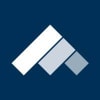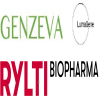Dive Brief:
- Swiss pharma Roche delivered strong revenue growth in the first quarter, expressing confidence in its ability to defend its flagship cancer franchises from biosimilar copies while new medicines build market share.
- Sales of its key HER2 breast cancer franchise grew 6% year-over-year, boosted by strong demand for Roche's successor drug Perjeta (pertuzumab). Recent positive results from the Phase 3 APHINITY study should give the company new momentum in adjuvant treatment of early breast cancer.
- A wave of biosimilar competitors threaten to undermine Roche's top-selling trio of cancer meds. But Daniel O'Day, head of Roche Pharmaceuticals, told investors Thursday to expect only an incremental effect this year and pointed to encouraging uptake of new drugs like immunotherapy Tecentriq (atezolizumab) and the multiple sclerosis treatment Ocrevus (ocrelizumab).
Dive Insight:
The Swiss pharma's big three earners of Herceptin (trastuzumab), Rituxan (rituximab) and Avastin (bevacizumab) all face biosimilar competition that threatens to steal away sales in Europe and the U.S.
Korean drugmaker Celltrion, for example, has begun selling a biosimilar copy to Rituxan in the U.K., with approval granted throughout the EU. Others are closing in, too. Novartis' Sandoz unit recently won endorsement from the European Medicines Agency for approval of its Rituxan biosimilar, while Mylan and the team of Amgen and Allergan are readying copycat versions of Herceptin and Avastin in the U.S., respectively.
The challenge for Roche, then, is managing to maintain sales or find new avenues of growth through what Daniel O'Day termed the "biosimilar erosion curve."
For breast cancer, combinations pairing Herceptin with newer follow-ons like Perjeta are a key strategy for the pharma giant.

In early March, Roche announced Perjeta met its primary endpoint in the closely watched APHINITY study, improving invasive disease-free survival for people with HER2-positive early breast cancer when paired with Herceptin and chemo.
Full details will be available at the American Society of Clinical Oncology meeting in June and Roche plans to file the data with regulators in both the U.S. and EU.
"As we look forward at the HER2 franchise, we are still going to compete on Herceptin — that doesn't go away. We've got Perjeta now showing significant increase in standard of care in all the indications," O'Day said.
"It doesn't take a lot of faith to suggest and be convinced that we can grow this franchise through the biosimilar erosion curve, particularly because remember the biosimilar erosion curve is happening not in one year, but happening over multiple years."
Roche is also fortunate in that it has two new drugs forecast to become major earners in the coming years. Tecentriq, the foundation of Roche's efforts in immuno-oncology, pulled in 113 million Swiss francs ($113 million) in sales during the first three months of 2017.
Adding to that potential, the U.S. approval of Roche's multiple sclerosis treatment Ocrevus gives the pharma a potent new franchise likely to quickly steal market share. Ocrevus is the first and only drug approved to treat the more severe primary progressive form of MS and Roche has already seen a strong launch with virtually no access restrictions, Day said.
Overall sales grew 4% to 12.9 billion Swiss francs at constant exchange rates, while pharmaceutical sales rose 3%.















